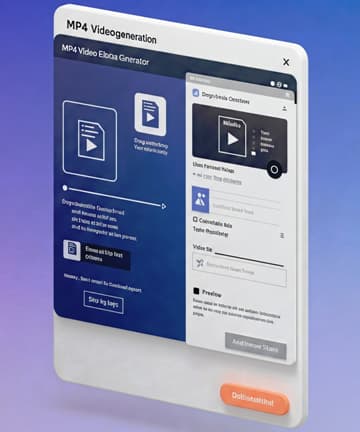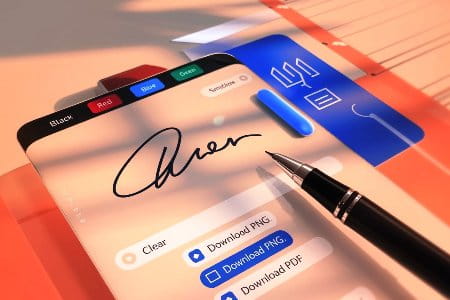📚 Flashcard Creator
Online Flashcard Creator – 100% Free Study Tool
No more studying dully. Those early days when you sat for hours and hours scribbling on index cards, only to have half of them go missing before your big test is done.
Digital flashcards revolutionized learning. They're convenient, interactive, and much easier than those old paper cards. You can study them anywhere, share them with friends, and track your progress like never before.
Why Digital Flashcards Are More Effective
Your mind likes repetition and patterns. Computer flashcards take advantage of this with the help of spaced repetition algorithms. They cycle the cards you're struggling with more rapidly while letting you whizz through the ones you've got down pat by heart.
Paper cards get lost, crumpled up, or forgotten at home. Digital Flashcards Create Free cards stay in your pocket. When taking a bus ride to a lecture or after class with five minutes free, you can squeeze in some studying.
The interactive nature keeps your brain engaged. Clicking to flip over a card, getting immediate feedback, and watching your progress counter tick off—these little actions create an efficient learning loop that paper cards can't match.
Who Uses Digital Flashcards Most
Test-takers adore them. Medical students memorizing anatomy terminology, language learners building vocab, and history buffs memorizing dates all use digital flashcards.
They are employed by professionals too. Real estate agents memorize sales figures, salespersons memorize product features, and teachers memorize lesson material. The versatility makes them perfect for any vocation requiring quick recall of facts.
Homework assistance parents enjoy the convenience. Homework practice time is no longer tedium. Parents make a list of spelling words or math facts, and kids will even choose the computer format over the old drill and chug.
The Features That Make the Difference
The top computer flashcard software makes it simple and fills it with helpful features. Clean, easy-to-use interfaces allow you to focus on learning rather than figuring out how to use a complex menu.
Getting it together quickly is the goal. Type in your question and answer, click add, and you're done. No pesky formatting and additional steps. The faster you can build your deck, the more time you have to study.
Study modes transform the experience. Shuffle cards randomly, complete them sequentially, or focus on those you've marked as difficult. This kind of flexibility is ideal for different study modes and keeps sessions engaging.
Monitoring progress motivates you to keep going. Seeing how many cards you've learned, your percentage correct, and study streaks provides the psychological boost that fuels long-term learning habits.
Smart Study Techniques
Flip cards blindly, no. Read the question, consider your response, and then check if you are right or wrong. This active recall builds memory associations much more powerful than passive reading.
Interleave your subjects. Drill Spanish vocabulary for ten minutes, then chemistry equations, then drill history dates. This interleave strategy forces your brain to make tighter associations between ideas.
Make efficient use of both sides. Write the word on front and meaning on back but also create reverse cards. If studying Spanish, create one card "casa → house" and another "house → casa." This two-way system halves your learning time.
Make the sessions short but frequent. Twenty minutes a day is better than three hours a week. Your brain takes time to memorize, and repeated use creates permanent memories.
Creating Effective Cards
Tell and ask in simple, direct terms. Ambiguously worded sentences open to two or more interpretations must be avoided. "When did World War II end?" is better than "When did the great war end?"
Break down complex topics into bite-sized pieces. Rather than loading all of a historical event onto one card, break it up into cards with causes, key figures, dates, and effects.
Write using your own words as much as possible. It makes cards far too convoluted to simply copy word for word from texts. Paraphrase ideas in your own words. It helps you to read through information and makes it simpler to remember.
Add context where it will be useful. "Capital of France" is too general, but "Capital of France (also called the City of Light)" provides useful association hints that contribute to memory formation. Common Errors to Avoid
Don't make cards too complex. One idea per card is still manageable. If you can't get your answer to a question into a paragraph, it's likely too general and needs to be split into several cards.
Don't make too many cards at first. Create a small set, master it well, and then add more. Trying to start with fifty cards is usually a recipe for frustration and lost study time.
Don't trust recognition. You might see the right answer when you glance at it, but that doesn't necessarily mean that you can pull it out of memory. Engage in active recall by hiding the answer and making yourself recall it.
Don't resort to the frilly designs unless it actually matters. Images, color, and foreign fonts are good for learning graphic concepts, but they are distractions when learning plain text data.
Making It Stick in the Long Run
Review frequently, not only before tests. Whatever is lost immediately after a test was not learned in the first place. Make a habit of regular review in your life to keep remembering over the course of years.
Associate new cards with familiar knowledge. As you learn about photosynthesis, associate it with what you already know about plants, energy, and chemical reactions. These associations create a web that's hard to erase.
Cram yourself in different environments. Study at home, in the library, and on buses. Variety keeps you able to recall wherever you are—test performance requires it.
Trade and compare cards with another person. Paraphrasing what you have written or explaining it to someone else forces you to read it even more carefully. Study group meetings and shared sets of flashcards can pinpoint where you are weak.
Electronic flashcards are no panacea, but they're a close alternative. They recycle lost time and turn it into study time, make learning enjoyable, and provide your brain with the repetition needed to build long-term memory. If you're preparing for tests or building knowledge at the workplace, they're tools you should know about.
The secret is repetition and intelligent building. Build individual cards, practice regularly, and believe in the process. Future you will thank you when that information is a flood in those stressful moments.





